Marquette faculty and staff voiced their concerns over potential budget cuts and layoffs as a result of the COVID-19 pandemic in Monday’s virtual University Academic Senate meeting.
Provost Kimo Ah Yun said that the university is 424 students short of the budget for the current fiscal cycle — 363 fewer first-years, 24 fewer transfer students and a drop of 37 continuing students.
Net revenue of tuition is approximately $23,000, Ah Yun said. By that calculation, the university earned more than $8.3 million less than usual this fall, excluding room and board revenues. The total loss, Ah Yun said, should be calculated by the students’ four years at Marquette, which is why the deficit is expected to carry over for the next three or four years.
Many in attendance were confused about these projections.
“It seems like that assumes that cohort of students just vanishes,” Kate Ward, assistant professor of theology, said. “Is there any chance that students who aren’t choosing to enroll this year — for obvious reasons — want to return for a more traditional college experience if things get better?”
Ah Yun admitted that Ward’s scenario could be possible but reiterated that the university expects a smaller class size for the class of 2025 as well — 250 less than pre-COVID-19 numbers.
“Could we beat our estimate? We would like that,” Ah Yun said. “But right now we’re thinking we’re probably going to be short again.”
Ah Yun said there are a number of different options the university is considering to reduce costs. Altering administrative structure — like having fewer provosts and vice presidents — is being considered. He said the university is predicting, based on a flat tuition and increased discount rate, a first-year class of about 1,770.
The class of 2023 had 1,974 students and the class of 2022 had a record-breaking 2,162 students.
There are a number of other strategies being explored to make up for the shortfalls of the 2021 fiscal year, which began July 1. The strategies will also be used to make up for the expected shortfalls of the 2022 fiscal year and beyond.
Joel Pogodzinski, senior vice president and chief operating officer for the university, said the university has estimated financial risks of $20-25 million, largely tied to the smaller first-year class.
“We embarked on a series of what I call ‘temporary actions,'” Pogodzinski said.
These include reduced discretionary spending, a 403b suspension, a decrease in the merit program and leadership pay reductions.
A 403b is a type of retirement plan for employees of public schools and tax-exempt organizations.
Pogodzinski said these temporary fixes were done out of necessity due to a short window to implement, and they allowed more time to address longer-term challenges, but aren’t sustainable for the long-term. He also said that the university could be looking at a larger revenue loss than first anticipated due to further de-densification of residence halls to gain approval of the Health Department and the Board of Directors.
He said the risk in the 2022 fiscal year will be in the range of $45 million or more, with a second cohort of students with smaller enrollment numbers.
“It’s our annual responsibility, as stewards of Marquette resources, not to outspend the revenues that we generate as an institution,” Pogodzinski said.
He went into discussing the “demographic cliff” the university has been anticipating since last spring, which he said the pandemic has accelerated. What he was referring to is the expected drop in college-age students — particularly in the midwest — due to less births.
“This is not a one-year event or a two-year event,” Pogodzinski said. “What we’re looking for is permanent, strategic, long-term actions.”
Additionally, having to shift online or the potential canceling of the basketball season could contribute to lost revenues, he said.
“This could be in the tens of millions of dollars,” he said.
The use of Marquette’s endowment of nearly $700 million is the university’s last option, and it is not currently anticipated, Pogodzinski said. This is despite the call to consider doing so by MU Faculty United this past summer.
Using the endowment would impact future endowment growth and revenue, but also current funding of certain departments, programs and scholarships. Using the endowment may also violate the Uniform Prudent Management of Institutional Funds Act, which requires all cohorts on a campus to benefit equitably, Pogodzinski said.
“If using the endowment is last resort, it does not inspire trust in the leadership to make productive changes,” Noelle Brigden, an associate professor of political science, said in the Microsoft Teams chat. “Endowment should not be the LAST resort. That constrains the process in counterproductive ways.”
Many faculty members expressed their concerns.
“Losing ANY faculty should be the last resort, not using the endowment,” Sonia Barnes, an associate professor of Spanish, said in the chat.
Allison Abbott, an associate professor of biological sciences, observed that it seemed like the university was planning on a “smaller Marquette.”
“How committed are we to that lower enrollment?” Abbott asked.
Ah Yun said the budget and the number of faculty and staff are generally built around the assumption that approximately 2,ooo students will enroll each year. He said even if class sizes grow little by little in the next few years, there will still likely be a downward trend.
Sergio Gonzalez, an assistant professor of history and Latinx studies, mentioned Marquette’s commitment to Beyond Boundaries and becoming a Hispanic Serving Institution, as well as the promises the university has made to its students of color in the last month, suggesting it is a “demographic shift” rather than “cliff” and that the university use current circumstances as an opportunity to reach out to minority groups.
“We don’t want to build a university on the hope that students will come,” Ah Yun said.
Doug Woods, vice provost for graduate and professional studies and dean of the Graduate School, spoke more on possible immediate budget cuts. These included workload adjustments; consolidation of colleges, administrations and staff functions; program consolidation and closure; changes to faculty workforce balance; various discretionary cuts; and tightening sabbatical requirements and availability.
“Anything we do in the short-term could have long-terms effects,” Woods said.
That being considered, Woods explained the “workgroups” being created to aid in the short-term budget reduction process and the long-term planning process. These groups will broach teaching, programs, administrative structure, research and the student body, among others.
Rachel Contos, a Trinity Fellow, reiterated that budgets are “moral documents.” As such, she suggested that one moral would be to not fire anyone. She also emphasized ensuring racial equity.
The Trinity Fellowship is a “graduate fellowship program dedicated to developing urban leaders with a commitment to social and economic justice,” according to its website.
Ah Yun mentioned deficits would be the equivalent of losing 450 faculty and staff members. However, Ah Yun said not all cuts would be from faculty.
“Invest in your institution when you are in an economic down cycle,” Julia Paulk, an associate professor in the department of languages, literatures and cultures, said in the Microsoft Teams chat.
The potential future reduction in faculty and staff comes after Marquette was ranked 18th in the country for undergraduate teaching by U.S. News and World Report. This is a jump from the previous ranking of 72.
This story was written by Alexa Jurado. She can be reached at [email protected].

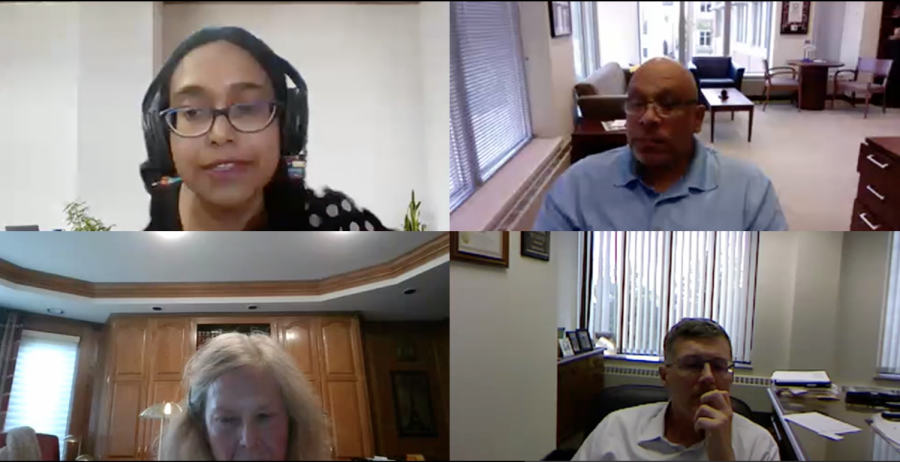
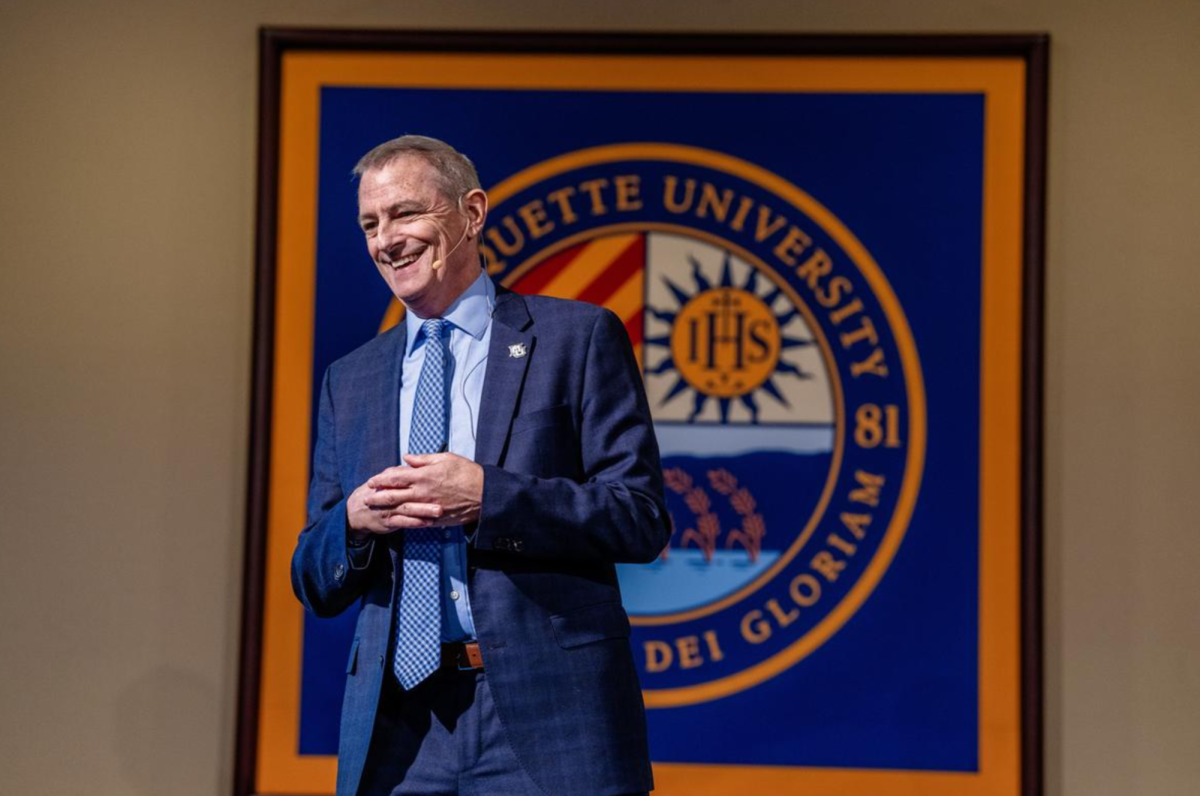
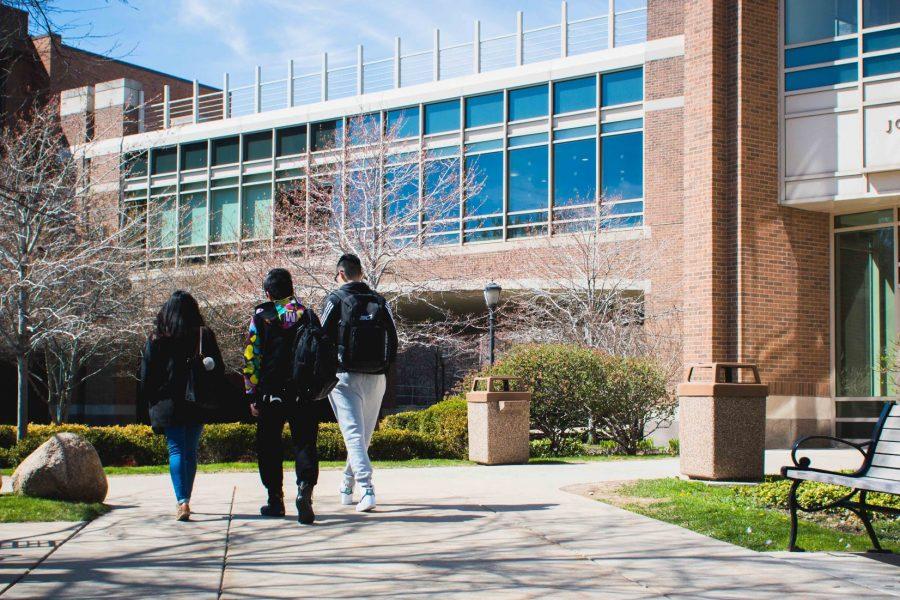
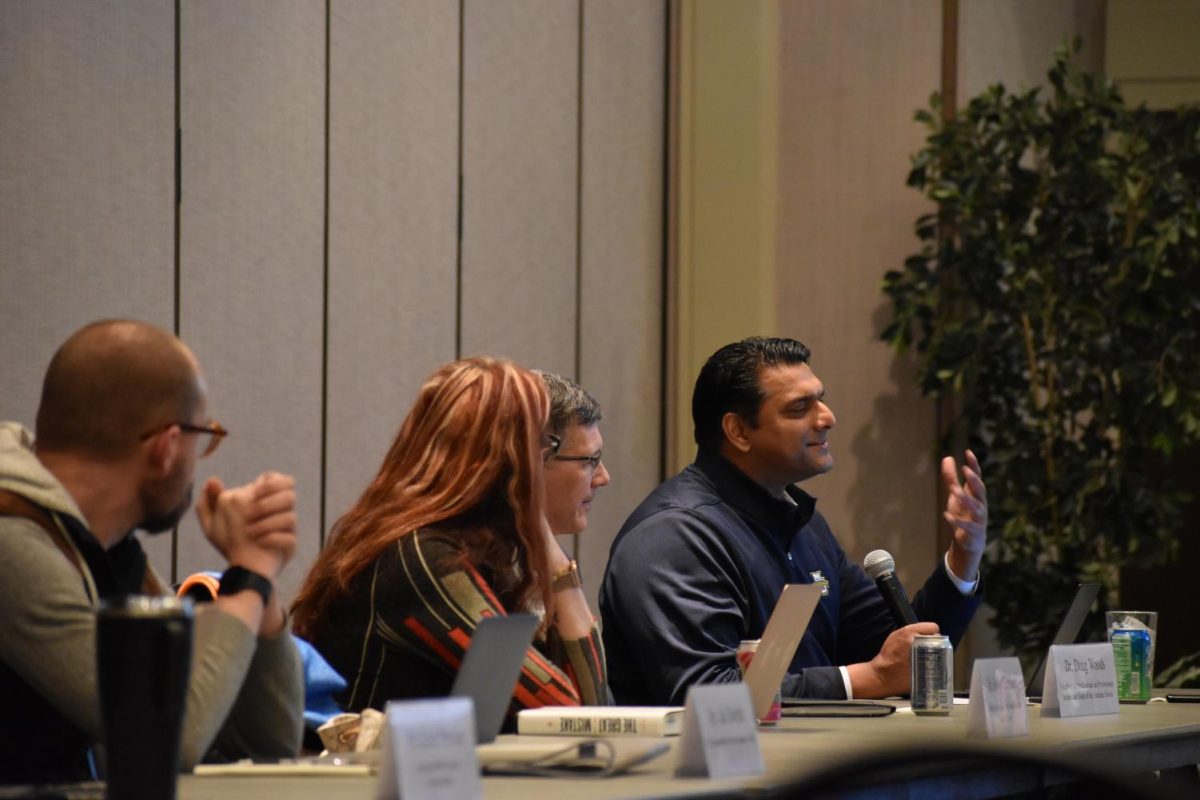
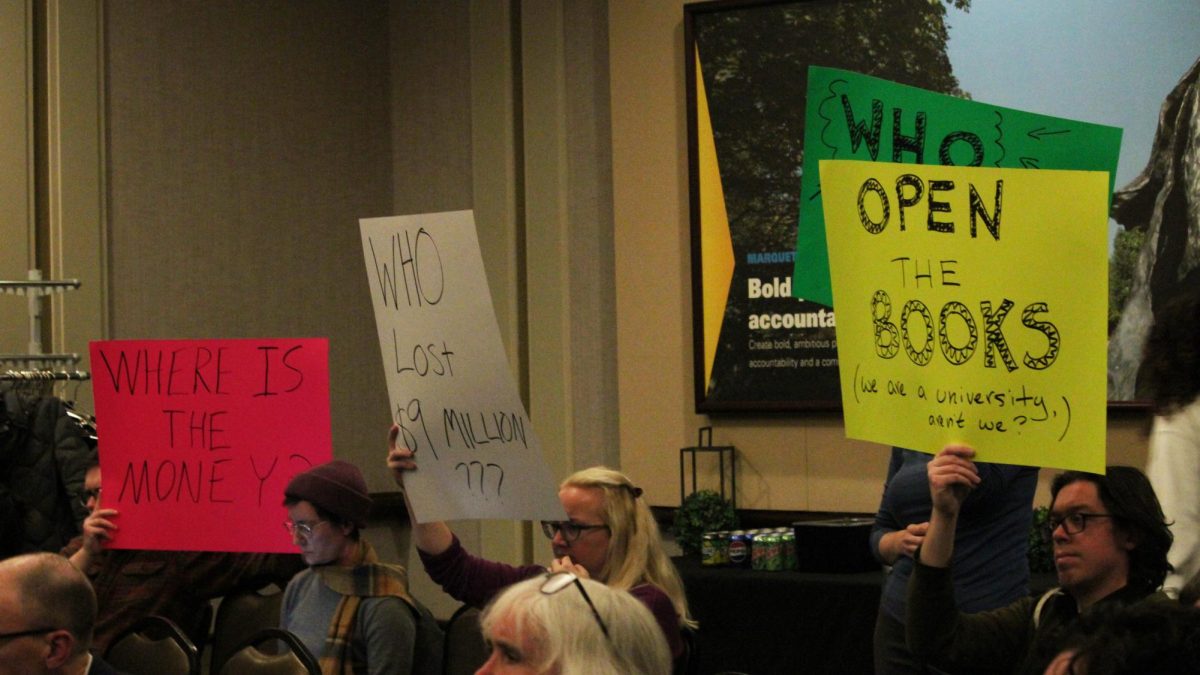

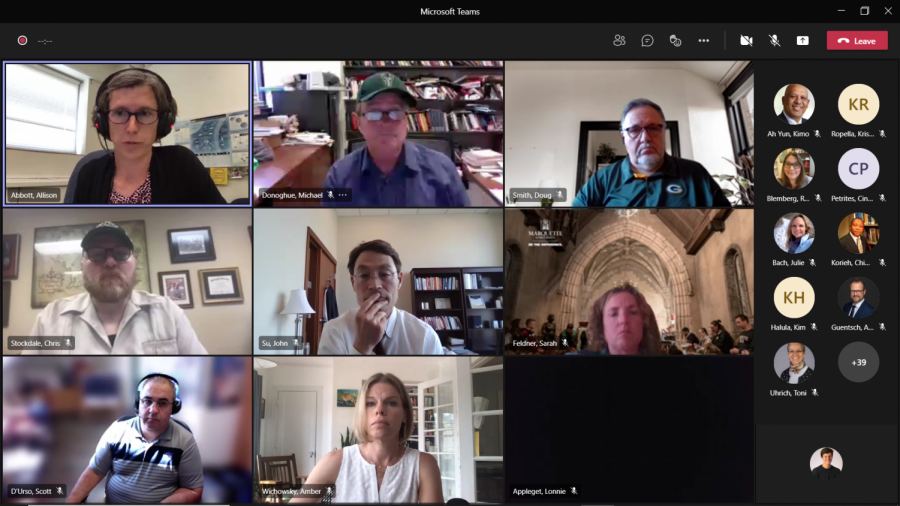
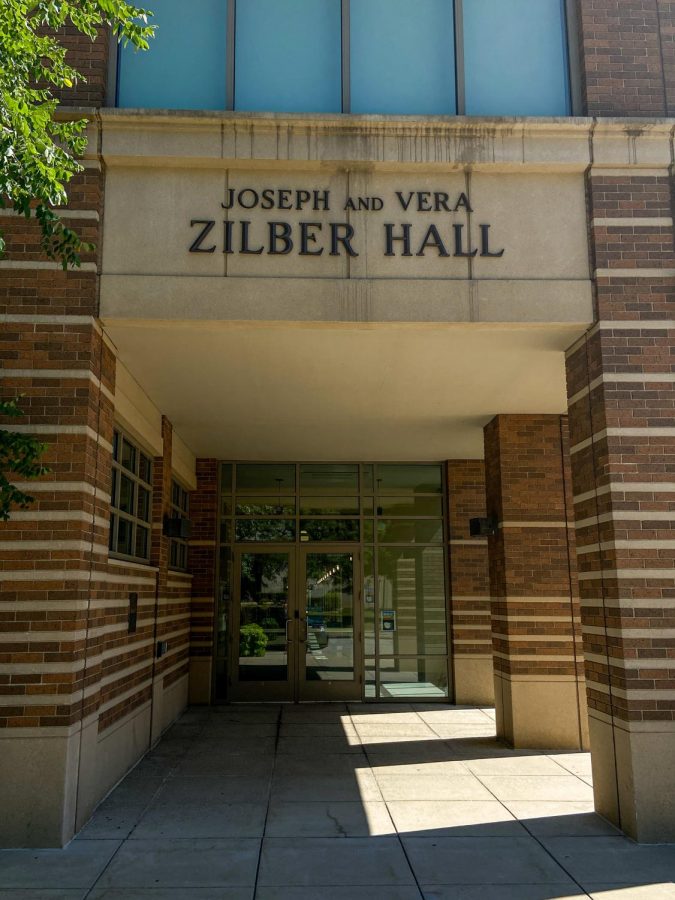
mumin cebe • Sep 23, 2020 at 2:53 pm
Thank you Alexa for preparing this great article.